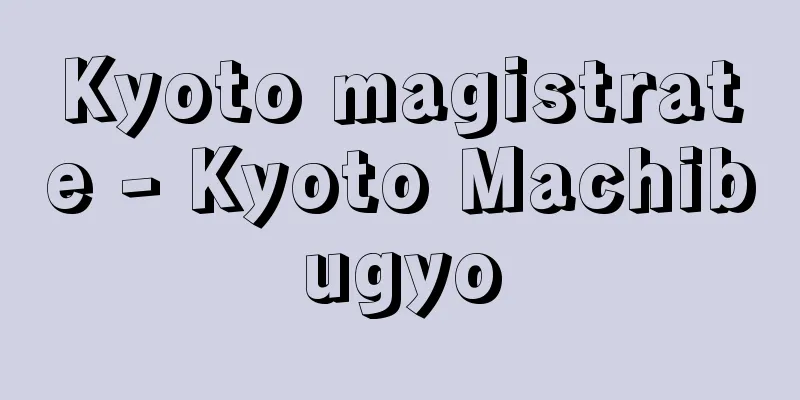caught in the act - caught in the act

|
A person who is currently committing or has just finished committing a crime (Criminal Procedure Code, Article 212, Paragraph 1). Under the current law, all criminals are always temporarily in the act of being caught in the act, but as time passes, they will no longer be caught in the act of being ... The Constitution of Japan states that an arrest warrant is not required to arrest someone in the act of committing a crime (Article 33), and according to the Code of Criminal Procedure, in principle, anyone, whether an investigative agency or a private citizen, can arrest someone in the act of committing a crime without an arrest warrant (Article 213, Exceptions Article 217). This is because the commission of a crime is clear and there is no risk of a mistaken arrest even without a judicial decision. In addition, the Code of Criminal Procedure states that if it is clear that a crime has not been committed recently and any of the following apply, the person is considered to be "deemed to be in the act of committing a crime" (Article 212, Paragraph 2). (1) He is being pursued as the perpetrator. (2) Possession of stolen property (property of another person obtained through criminal activity) or a weapon or other item that is clearly intended to have been used in the commission of a crime. (3) There are obvious evidences of a crime on the person or in their clothing. (4) When questioned, the person tries to escape. [Oide Yoshitomo] [Reference] |Source: Shogakukan Encyclopedia Nipponica About Encyclopedia Nipponica Information | Legend |
|
現に罪を行い、または現に罪を行い終わった者(刑事訴訟法212条1項)。現行法では、すべての犯人が一時的にはかならず現行犯であり、時間の経過によって現行犯でなくなる。その時間的、場所的限界について、最高裁判所は、犯行後30~40分経過して、犯行現場から20メートルくらい隔たった場所にいたものを現行犯としている(昭和31年10月25日最高裁判所第一小法廷決定)。これに対し旧刑事訴訟法は、「現ニ罪ヲ行ヒ又ハ現ニ罪ヲ行ヒ終リタル際ニ発覚シタルモノヲ現行犯トス」(130条1項)とし、発覚の時点で現行犯ということになれば、時間の経過にかかわらずその身分は継続することになっていた。 日本国憲法は、現行犯の逮捕には逮捕令状を要しないとしており(33条)、刑事訴訟法によれば、原則として、捜査機関であれ私人であれ、何人(なんぴと)でも逮捕令状なしに現行犯を逮捕できる(213条、例外217条)。これは、犯罪の実行が明白で、司法的判断を経なくとも誤認逮捕のおそれがないからである。また、刑事訴訟法は、罪を行い終わってから間がないと明らかに認められるもので、次のいずれかに該当する場合を準現行犯として、「現行犯人とみなす」ことにしている(212条2項)。 (1)犯人として追呼されている。 (2)贓物(ぞうぶつ)(犯罪行為によって手に入れた他人の財物)または明らかに犯罪の用に供したと思われる兇器(きょうき)その他の物を所持している。 (3)身体または被服に犯罪の顕著な証跡がある。 (4)誰何(すいか)されて逃走しようとする。 [大出良知] [参照項目] |出典 小学館 日本大百科全書(ニッポニカ)日本大百科全書(ニッポニカ)について 情報 | 凡例 |
<<: Health insurance - kenkouhoken
Recommend
Rhyming book - Insho
A dictionary that classifies and arranges Chinese...
separation
...(1)flight plan When flying in controlled airsp...
Oohokigayatsuri - Oohokigayatsuri
...The bark of the stems of the Chinese sedge, cu...
Demon child - Oni
〘noun〙① A child born with a strange appearance res...
King's Right Army
…His name was Yisho. He was called Wang Youjun by...
petiole
…Leaves are made up of a petiole and a blade, and...
Le Duy Mat (English spelling)
?-1770 A rebel leader in 18th century Vietnam. Bor...
Sir William Henry Perkin
British chemist and engineer. Famous for the indu...
Gymnura poecilura (English spelling) Gymnurapoecilura
…[Toru Taniuchi]. … *Some of the terminology that...
Emperor System - Tennousei
In the narrow sense, the term "imperial syst...
Monteux
A French-born American conductor. He studied violi...
Onion thrips (Onion thistle)
A tiny insect belonging to the Thripidae family of...
Many shrines - Ojinja
…According to the Kojiki and Nihon Shoki, the anc...
Seita Kumura - Seita Kumura
Businessman. Born in Sakata, Yamagata Prefecture....
Ishvarakrishna (English spelling)
His birth and death years and biography are unkno...

![Wadomari [town] - Wadomari](/upload/images/67cd42ff5da5f.webp)







![Nishinomiya [city] - Nishinomiya](/upload/images/67cc6d349ec97.webp)